目次
ヒトラーはなぜ権力を掌握できたのか 神野正史著『世界史劇場 ナチスはこうして政権を奪取した』概要と感想
今回ご紹介するのはベレ出版より2016年に出版された神野正史著『世界史劇場 ナチスはこうして政権を奪取した』です。
第二次世界大戦を知るにはヒトラー台頭の歴史を知ることが不可欠です。
ヒトラーはどのような人物だったのか。どのように権力を掌握していったのか。ヒトラーのナチスは何を考え、何をしようとしていたのか。
これらのことを学ぶ上でこの本は非常にわかりやすく面白い参考書となっています。
早速この本について見ていきましょう。
〇第一次世界大戦後のヴェルサイユ体制下における欧米の動きと、ナチスの誕生から全権委任法成立までの過程を詳しく解説。
〇まるで映画や舞台を観るような感覚でスイスイ読めてわかりやすい!
〇歴史が”見える”イラスト”が満載!
〇歴史を学びなおしたい大人から、歴史が苦手な高校生まで楽しめる。
ベレ出版、神野正史『世界史劇場 ナチスはこうして政権を奪取した』
この本のありがたいのはヒトラーのことだけではなく、ヒトラーが出てくる前の世界情勢もしっかり解説してくれるところです。
第一次世界大戦後のヨーロッパがいかに歪んでいたか、そしてドイツ国民がどのような状況に置かれていたかを知ることができます。
ヒトラーが台頭していったのは、彼の主張が通りやすい状況にあったからというのがよくわかります。神野氏の解説によって歴史の流れがすっと入ってきます。
ヒトラーはヒトラーだけにあらず。国際社会やドイツ国内の複雑な背景が絡み合ってヒトラーが生まれてきたことを学べます。
ではいつものように神野氏の「はじめに」の文章を読んでいきます。
はじめに
一歴史に学ばぬ者はかならず亡びる。
一愚者は経験に学び、賢者は歴史に学ぶ。
前者がW.L.S.チャーチル、後占がO.E.L.ビスマルクの言葉ですが、似たような言葉は古今東西にあります。
しかし、偉人たちがどれだけ警鐘を鳴らそうとも、人はなかなか「歴史に学ぶ」ことができません。
18世紀末から19世紀初頭にかけて、ナポレオンがヨーロッパに覇を唱え、旧秩序(ウェストファリア体制)を破壊しました。
彼の没落後、ウェストファリア体制に代わる「新しい国際秩序」を構築するべく、ヨーロッパ中の国々の全権が集まってウィーン会議が開かれることになりましたが、その会議を主導したのは英・仏・普・墺・露の五大国のみ。
こうして生まれた新秩序が、所謂「ウィーン体制」です。
しかし、こんな大国唱導の独善的なやり方が長続きするはずもなく、ウィーン体制はわずか33年で崩壊し、あとは岩が崖を転がり落ちていくように「第一次世界大戦」へと驀進していく結果となります。
戦後、「二度とこんな戦禍をもたらさぬため、ウィーン体制に代わる新しい国際秩序を創ろう!」と開催されたのがパリ講和会議です。
ところが。
ウィーン会議同様、会議には世界中から全権が招かれながら、ここで発言権を有したのは、米・英・仏・伊・日の五大国のみ。
しかも、会議開始まもなくイタリア・日本が委員会から叩き出され、結局、米・英・仏の三巨頭の密談で「新国際秩序」が構築されることになります。こうして生まれたものが「ヴェルサイユ体制」です。
これでは、短命に終わり、第一次世界大戦を招いた「ウィーン体制」となんら変わりません。
彼らはまるで「歴史に学ぶ」ことができなかったのです。
案の定、ヴェルサイユ体制は、A.ヒトラー、B.ムッソリーニ、東条英機らを産み落とし、育み、第一次世界大戦などおよびもつかないほどの悲惨な戦争「第二次世界大戦」を自らの手で招き寄せることになりました。
巷間、戦禍のすべての責任を「ヒトラーが悪い」「東条が悪い」と、一個人に負わせるような固定観念が蔓延していますが、それはきわめて程度の低い浅慮と言わざるを得ません。
たとえば、ひとつの犯罪について裁判が行われるとき、「何もかも被告(人)が悪い!」と決め付けて刑罰が科されるわけではありません。
裁判では、被告(人)の生い立ち・環境・経歴その他諸々の事情を徹底的に調べあげ、犯罪の”温床”を明らかにしようとします。
そうすることで初めて犯罪の原因・本質に迫ることができ、ひいては再犯防止につなげることも可能になるからです。
歴史も同じです。
悲劇を繰り返さないために「歴史に学ぶ」というのは、単に「悲劇の責任を一個人に押しつける」ということではありません。
・そもそもなぜ「ヒトラー」という独裁者が現れたのか。
・ヒトラーを生み育てる揺籃となった”元凶”は何か。
世間では、ヒトラーのしでかした派手な汚行悪行ばかりが取り上げられ、強調され、人々はこれに目を奪われていますが、そもそも「彼を存在せしめた根本原因」について語られることはあまりありません。
しかし、それを知らないということは、ヒトラーの本質を何ひとつわかっていないということです。
本書がそのことについて考える糸口となってくれたなら、これを世に送った筆者としてこんなにうれしいことはありません。
ベレ出版、神野正史『世界史劇場 ナチスはこうして政権を奪取した』
前回の記事では同じ『世界史劇場』シリーズの第二次世界大戦についての本をご紹介しました。
あわせて読みたい
神野正史『世界史劇場 第二次世界大戦 熾烈なるヨーロッパ戦線』あらすじと感想~WW2の流れを掴むのに...
複雑怪奇な国際情勢をこの本では学べます。そして単に出来事の羅列ではなくなぜ歴史がそのように動いたのかという「なぜ」を神野氏は強調していきます。ここが『世界史劇場』シリーズの素晴らしいところだと思います。単なる暗記ではなく、「なぜ」を考える思考力を鍛えてくれるところにこの本の特徴があると私は思っております。非常におすすめな一冊です。
今回の『世界史劇場 ナチスはこうして政権を奪取した』は第二次世界大戦に至るまでのドイツの動きや世界情勢について解説していきます。
上の「はじめに」の文章にもありましたようにヒトラーが出てくるにはそれを可能にさせた時代背景があったからこそです。ヒトラーただ一人のカリスマや実力によって独裁者へと成り上がったのではありません。
戦争は交戦している時だけが戦争というわけではありません。戦争は戦う前から始まっています。そうした複雑で緊迫した世界情勢を知らなければ戦争の全体像は見えてきません。
そうした意味でナチスが台頭していくドイツの流れを知ることは第二次世界大戦を学ぶ上で非常に重要な要素になっていきます。
民主主義であったはずのドイツがなぜ全体主義へと突き進んでいったのか。
これは日本においても当てはまる事象です。
ナチスを学ぶことは私達の歴史を学ぶことにもつながります。
この本ではいつものごとく、神野氏の絶妙な解説で進んで行きます。とにかく面白く、読みやすいです。ドイツの流れをまずは知りたいという方には非常におすすめな1冊となっています。
以上、「『世界史劇場 ナチスはこうして政権を奪取した』ヒトラーの権力掌握の過程を知るのにおすすめな参考書!」でした。
Amazon商品ページはこちら↓
世界史劇場 ナチスはこうして政権を奪取した
次の記事はこちら
あわせて読みたい
A・ナゴルスキ『モスクワ攻防戦ー20世紀を決した史上最大の戦闘』あらすじと感想~独ソ戦をもっと知るな...
本書は独ソ戦をもっと知りたい方にはとてもおすすめな本です。 写真や図も豊富で当時の様子をイメージしやすくなっています。
そして何より、読み物としてとても面白いです。なぜモスクワ攻防戦は世界最大規模の戦闘となったのか。なぜ兵士たちは無駄死にしなければならなかったのか。
無敵と思われたドイツ軍がなぜ敗北したのかということがドラマチックに語られていきます。
前の記事はこちら
あわせて読みたい
神野正史『世界史劇場 第二次世界大戦 熾烈なるヨーロッパ戦線』あらすじと感想~WW2の流れを掴むのに...
複雑怪奇な国際情勢をこの本では学べます。そして単に出来事の羅列ではなくなぜ歴史がそのように動いたのかという「なぜ」を神野氏は強調していきます。ここが『世界史劇場』シリーズの素晴らしいところだと思います。単なる暗記ではなく、「なぜ」を考える思考力を鍛えてくれるところにこの本の特徴があると私は思っております。非常におすすめな一冊です。
独ソ戦おすすめ参考書一覧はこちら
あわせて読みたい
独ソ戦のおすすめ参考書16冊一覧~今だからこそ学びたい独ソ戦
この記事では独ソ戦を学ぶのにおすすめな参考書を紹介していきます。
独ソ戦は戦争の本質をこれ以上ないほど私たちの目の前に突き付けます。
なぜ戦争は起きたのか。戦争は人間をどう変えてしまうのか。虐殺はなぜ起こるのかということを学ぶのに独ソ戦は驚くべき示唆を与えてくれます。私自身、独ソ戦を学び非常に驚かされましたし、戦争に対する恐怖を感じました。これまで感じていた恐怖とはまた違った恐怖です。ドラマや映画、ドキュメンタリーで見た「被害者的な恐怖」ではなく、「戦争そのものへの恐怖」です。
関連記事
あわせて読みたい
ナチスのホロコーストを学ぶためのおすすめ参考書一覧
この記事ではこれまで当ブログで紹介してきたホロコーストの歴史を学ぶ上で参考になる本をご紹介していきます。 それぞれのリンク先ではより詳しくその本についてお話ししていきますのでぜひそちらもご覧ください。皆さんのお役に立てましたら幸いでございます。
あわせて読みたい
私達日本人が今あえて独ソ戦を学ぶ意義ー歴史は形を変えて繰り返す・・・
戦争がいかに人間性を破壊するか。
いかにして加害者へと人間は変わっていくのか。
人々を戦争へと駆り立てていくシステムに組み込まれてしまえばもはや抗うことができないという恐怖。 平時の倫理観がまったく崩壊してしまう極限状態。
独ソ戦の凄まじい戦禍はそれらをまざまざと私たちに見せつけます。
もちろん太平洋戦争における人々の苦しみを軽視しているわけではありません。 ですが、あえて日本から離れた独ソ戦を学ぶことで戦争とは何かという問いをより客観的に学ぶことができます。だからこそ私はあえて独ソ戦を学ぶことの大切さを感じたのでした。
あわせて読みたい
大木毅『独ソ戦 絶滅戦争の惨禍』あらすじと感想~独ソ戦の全体像が分かりやすく解説されたおすすめの入...
この本では独ソ戦がなぜ始まったのか、そしてどのように進んで行ったかがわかりやすく解説されています。
そしてこの戦争における巨大な戦闘、モスクワ攻防戦、レニングラード包囲戦、スターリングラード攻囲戦についても解説していきます。独ソ戦の勝敗を決定づけるこれらの巨大な戦いとは一体どんなものだったのか。信じられないほどの犠牲者を出した圧倒的な戦いを私たちは知ることになります。
あわせて読みたい
『レニングラード封鎖 飢餓と非情の都市1941-1944』あらすじと感想~80万人以上の餓死者を出したサン...
この本はあまりにショッキングです。かなり強烈な描写が続きます。地獄のような世界でレニングラード市民は生きていかなければなりませんでした。市民が飢えていき、どんどん死んでいく様子がこの本では語られていきます。生き残るために人々はどんなことをしていたのか。そこで何が起きていたのか。その凄まじさにただただ呆然とするしかありません。80万人以上の餓死者を出したというその惨状に戦慄します・・・
あわせて読みたい
『スターリングラード―運命の攻囲戦1942-1943』あらすじと感想~独ソ戦最大級の市街戦を描いた戦争ノン...
モスクワ攻防戦が郊外での防衛戦であり、レニングラードの戦いは包囲戦でした。それに対しこの戦闘はスターリングラード周辺地域だけでなく大規模な市街戦となったのが特徴です。空爆と砲撃で廃墟となった街の中で互いに隠れ、騙し合い、壮絶な戦闘を繰り広げたのがこの戦いでした。スターリングラードの死者はソ連側だけで80万人を超えると言われています。
独ソ戦のあまりの規模に衝撃を受けることになった読書でした。
あわせて読みたい
A・ビーヴァー『ベルリン陥落 1945』あらすじと感想~ソ連の逆襲と敗北するナチスドイツの姿を克明に描...
著者のアントニー・ビーヴァーは前回の記事で紹介した『スターリングラード運命の攻囲戦1942‐1943』の著者でもあります。今作でも彼の筆は絶品で、ぐいぐい読まされます。ソ連の逆襲とナチスが決定的に崩壊していく過程がこの本では語られていきます。
ナチス、ソ連両軍ともに地獄のような極限状態の中、どのような行為が行われていたのか。この本で目にする内容はあまりに悲惨です。
あわせて読みたい
アレクシエーヴィチ『戦争は女の顔をしていない』あらすじと感想~独ソ戦を体験した女性達の声に聴くー...
この本はアレクシエーヴィチが独ソ戦に従軍、あるいは戦禍を被った女性にインタビューし、その記録を文章化したものになります。独ソ戦という巨大な歴史の中では個々の人間の声はかき消されてしまいます。特に、女性はその傾向が顕著でした。戦争は男のものだから女は何も語るべきではない。そんな空気が厳然として存在していました。
そんな中アレクシエーヴィチがその暗黙のタブーを破り、立ち上がります。アレクシエーヴィチはひとりひとりに当時のことをインタビューし、歴史の闇からその記憶をすくいあげていきます。
あわせて読みたい
死の収容所アウシュヴィッツを訪れる①~ホロコーストから学ぶこと ポーランド編④
2019年4月14日。
私はポーランド最大の目的地、アウシュヴィッツに向かいました。
幸い、朝から天候にも恵まれ、前日までの凍てつくような寒さも少し和らいだようだ。
クラクフのバスターミナルからバスでおよそ1時間半。
アウシュヴィッツ博物館前で降車します。
この記事では私のアウシュヴィッツでの体験をお話しします。
あわせて読みたい
神野正史『世界史劇場 ロシア革命の激震』あらすじと感想~ロシア革命とは何かを知るのにおすすめの入門...
神野氏の本はいつもながら本当にわかりやすく、そして何よりも、面白いです。点と点がつながる感覚といいますか、歴史の流れが本当にわかりやすいです。
ロシア革命を学ぶことは後の社会主義国家のことや冷戦時の世界を知る上でも非常に重要なものになります。
著者の神野氏は社会主義に対してかなり辛口な表現をしていますが、なぜ神野氏がそう述べるのかというのもこの本ではとてもわかりやすく書かれています。
この本はロシア革命を学ぶ入門書として最適です。複雑な革命の経緯がとてもわかりやすく解説されます。
あわせて読みたい
神野正史『世界史劇場 第一次世界大戦の衝撃』あらすじと感想~この戦争がなければロシア革命もなかった
前回の記事に引き続き神野正史氏の著作をご紹介していきます。
というのも、ロシア革命は第一次世界大戦がなければ起こっていなかったかもしれないほどこの戦争と密接につながった出来事でありました。
『世界史劇場 ロシア革命の激震』でもそのあたりの事情は詳しく書かれているのですが、やはりこの大戦そのものの流れや世界情勢に与えた影響を知ることでよりこの革命のことを知ることができます。
単なる年号と出来事の暗記ではなく、歴史がどのように動いていったのかを知るのにも最高な入門書です。しかもとにかく面白くて一気に読めてしまう。これは本当にありがたい本です。
ロシア革命や当時のロシアが置かれていた状況を知る上でもこの本はおすすめです。
あわせて読みたい
ゾラ『壊滅』あらすじと感想~フランス第二帝政を崩壊させた1870年普仏戦争を見事に活写! 戦争文学の...
今作は日本ではあまり知られてはいませんが戦争文学の金字塔と評価されている作品です。
ゾラ得意の五感を刺激する文章はまるで自分が間近で戦争を見ているかのような感覚にさせます。
ゾラはやはり芸術家です。読む者に恐るべきインスピレーション、イメージ、ショックを与えます。彼は単に世の中の相を写し取っただけではなく、それを芸術に昇華させています。
『壊滅』は叢書のクライマックスにふさわしい重厚な作品でした。戦争文学の傑作、金字塔という名声は疑いようもありません。素晴らしい作品でした。
あわせて読みたい
神野正史『世界史劇場 フランス革命の激流』あらすじと感想~フランス革命のなぜと流れを知るならこの...
この本は読んでいて本当にわかりやすいです。なぜその出来事が起こったのか、そしてそこからどう展開していくのかという歴史の流れを知ることができます。
この本はフランス革命の入門書として最適です。
あわせて読みたい
ナポレオンってどんな人?その出自と下積み時代 ドストエフスキー『罪と罰』とナポレオンの関係を考察
ナポレオンといえばその知名度は抜群ではあるものの、実際にいつ頃活躍し何をした人物かと問われれば意外とこれに答えるのは難しいのではないでしょうか。
正直に申しますと、今回フランスのことを学ぶまで私もよくわかっていませんでした。知れば知るほどなるほどなるほどと面白い発見でいっぱいでした。
あわせて読みたい
神野正史『世界史劇場 日清・日露戦争はこうして起こった』あらすじと感想なぜ日露戦争は勃発したのか...
この本ではまず眠れる獅子清国がいかに繁栄しいかにして衰退していったのかが書かれ、それに伴い朝鮮や日本がどのように動いていったのかが描かれます。
その時日本はまさに幕末。外国勢力の圧力が否が応にも増し、開国か攘夷かで揺れていた時期です。
この頃の日本の混乱や、その当時の中国、朝鮮、ヨーロッパ情勢が神野先生によってわかりやすく解説されます。かなり意外な発見もありとても楽しく読むことができます。
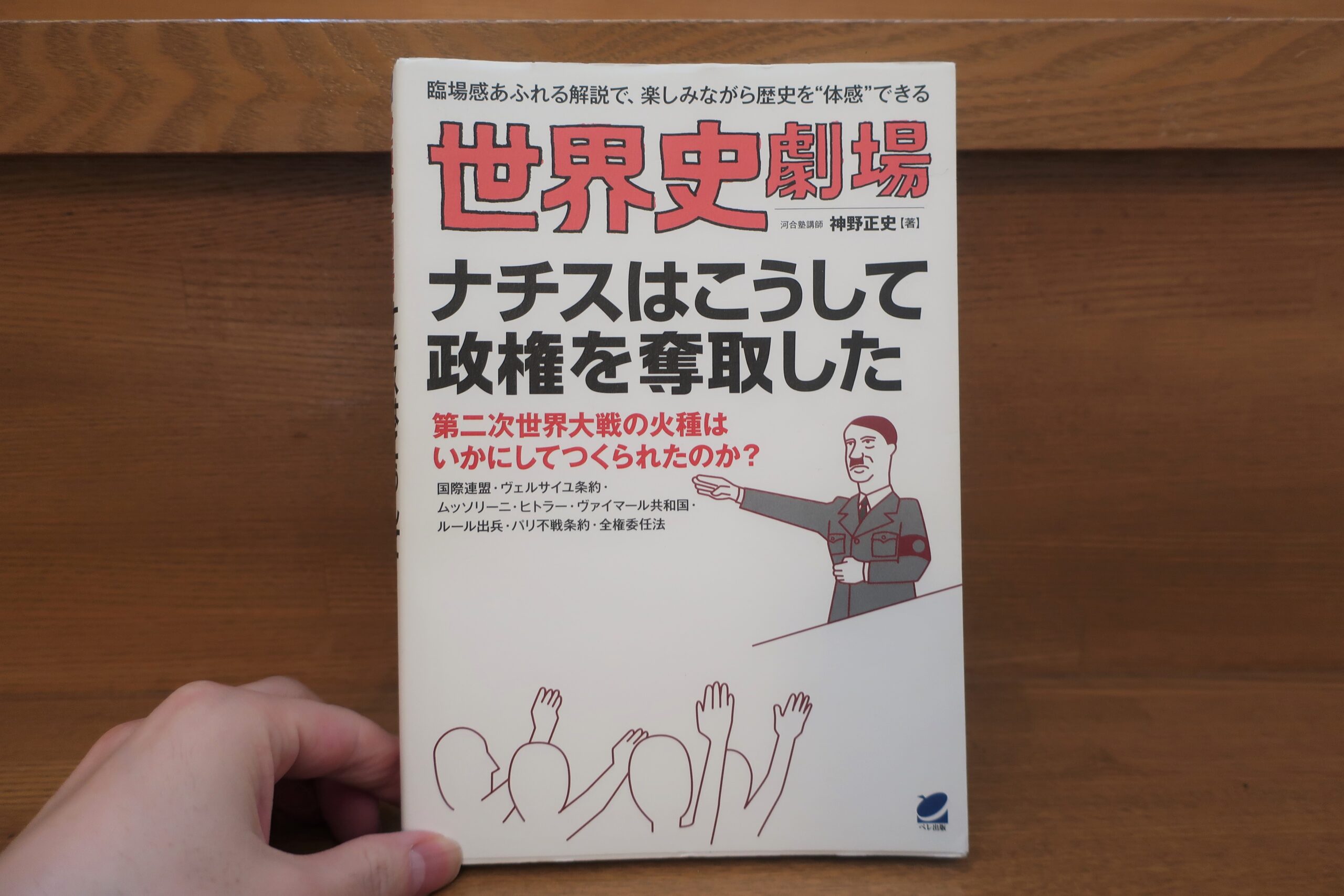
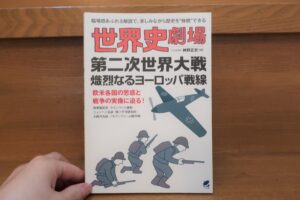



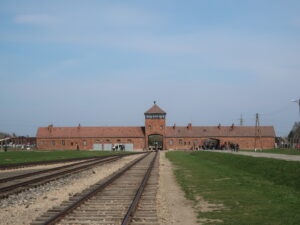
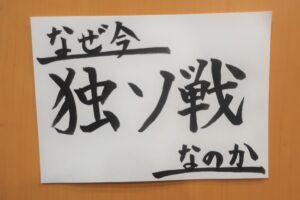

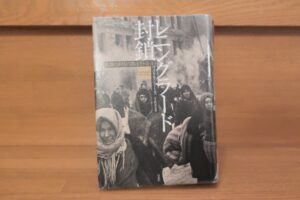
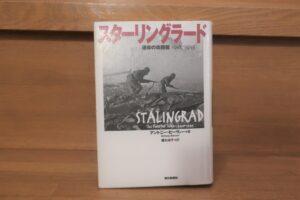
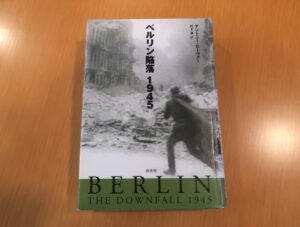
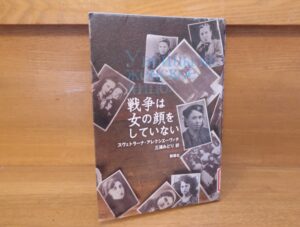

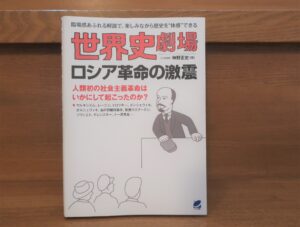
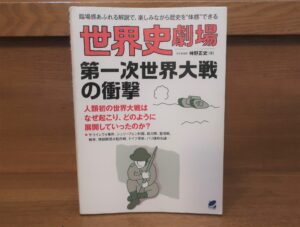
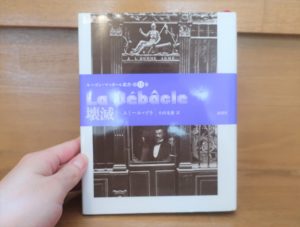
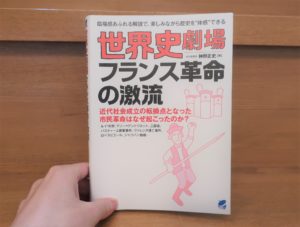
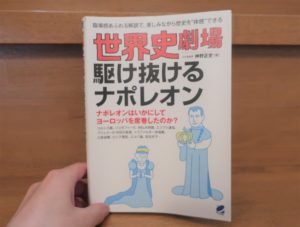
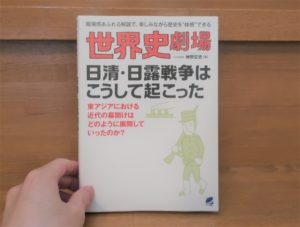

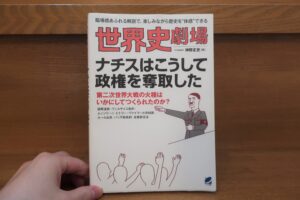
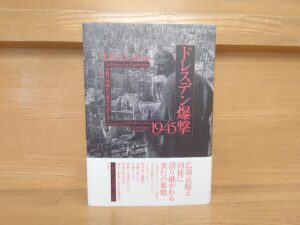

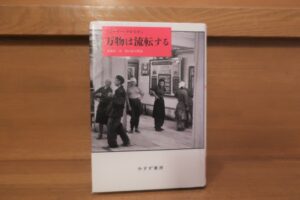
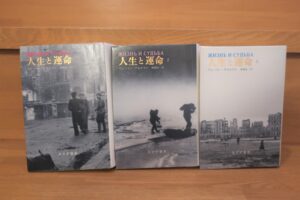
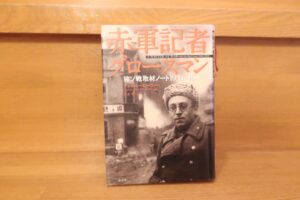
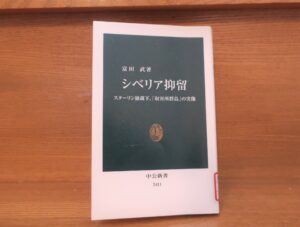

コメント